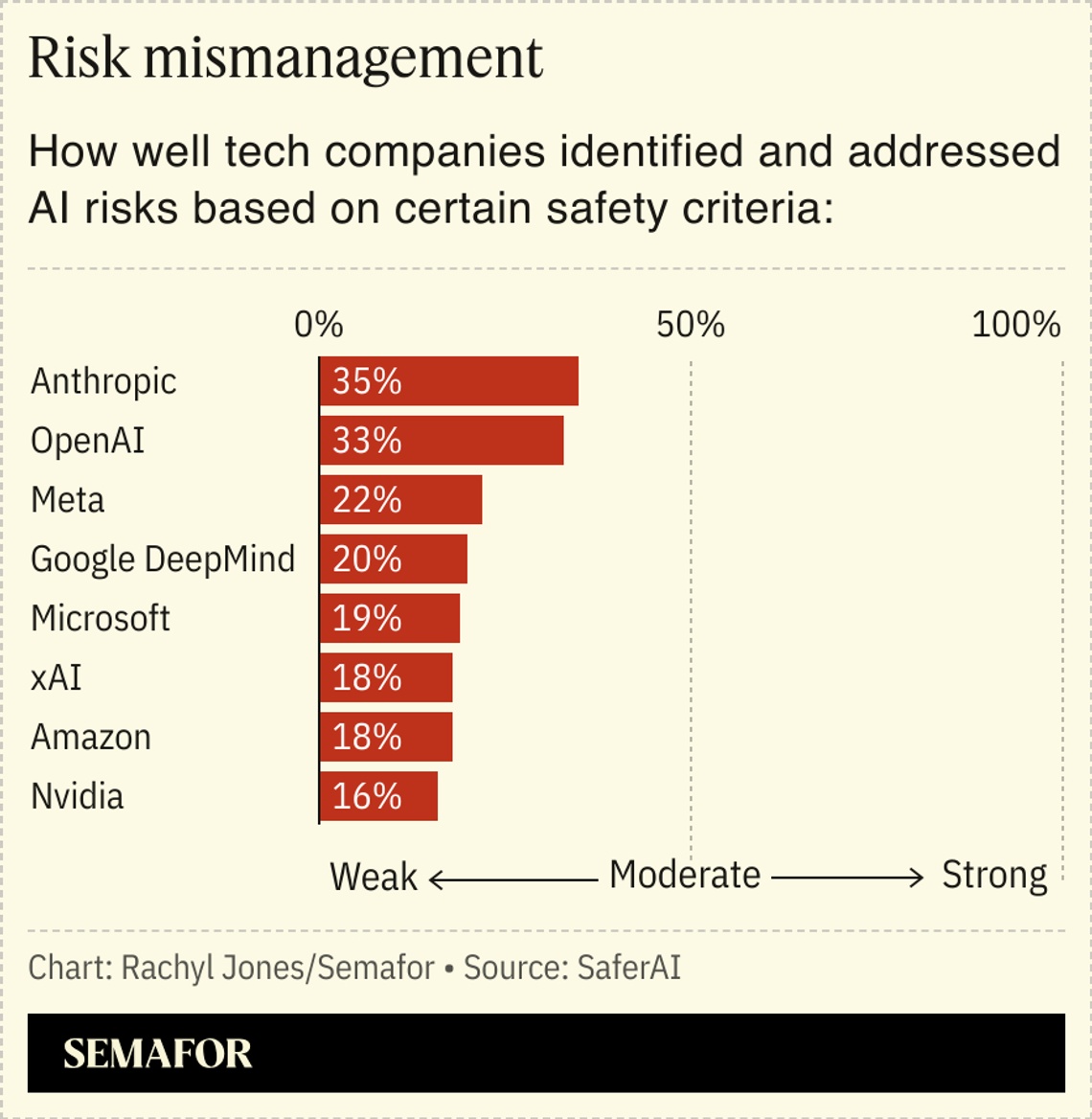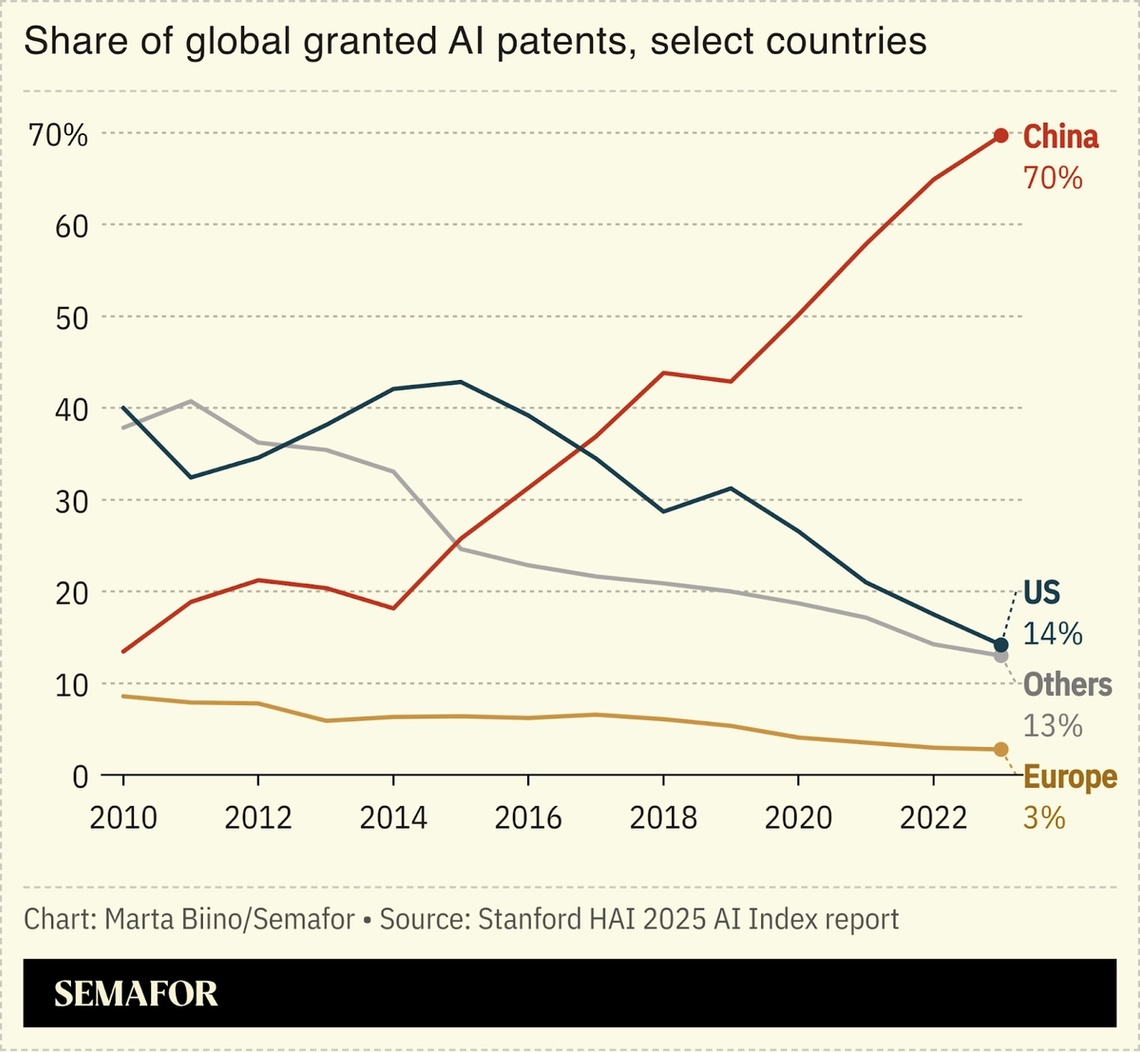| | In this edition, how agentic AI is getting closer to knowing a person’s individual needs and behavio͏ ͏ ͏ ͏ ͏ ͏ |
| |  | Technology |  |
| |
|
 | Rachyl Jones |
|
How do you code common sense? I have been thinking about that this week amid a flood of announcements on new agentic AI systems. The AI industry has for decades fallen short of imparting common sense knowledge into the models they trained, in part because the technology wasn’t there yet. Today’s generative platforms have learned a lot from the sheer volume of information they have gobbled up, but tomorrow’s agentic systems are going to need common sense specific to an individual person’s context, which can’t be learned from large data sets. To take an example from Amazon Scholar Michael Kearns, who also teaches computer science at the University of Pennsylvania, humans use common sense when deciding whether to close and lock doors, but those choices are also entirely individualistic. I always lock my apartment door, except when I’m just stepping out for a moment. I keep my office door open when I’m casually working but closed when I need to focus. Every choice is reasonable to me, but someone else may make different decisions. In the digital realm, there are endless choices humans make in their work and personal lives that agents are somehow going to need to understand to reach the next level of intelligence and take actions on our behalf. It will take time for agents to monitor and make sense of a person’s habits, to the point where they can predict them. “Agents will probably be a bit clunkier in the beginning because they won’t have this yet,” Kearns told me. But whichever company can individualize agentic AI judgement first could yield the next buzzy ChatGPT moment and catapult them to the front of the AI race. ➚ MOVE FAST: Make your case. The latest ChatGPT agent can make spreadsheets or work up a PowerPoint for users, putting it in closer competition with OpenAI investor Microsoft. Through its products, Sam Altman’s firm is showing it’s increasingly moving on from its partnership with the software giant. ➘ BREAK THINGS: Case closed. Mark Zuckerberg, Marc Andreessen, and Sheryl Sandberg will avoid being grilled in court after they settled a shareholder lawsuit over the 2018 Cambridge Analytica privacy scandal. The terms have yet to be disclosed, but such deals have become the price of doing business, after a $5 billion US government fine in 2019 related to the incident. |
|
 AI companies are nowhere near having strong risk management practices — even the ones touting AI safety like Anthropic, according to a new report released Thursday by risk management nonprofit SaferAI. The France-based nonprofit reviewed the companies’ frontier safety frameworks — documents outlining risk management protocols — published this year. It evaluated 65 safety criteria on a performance scale where 0% represents that principle not being mentioned in the framework and 100% means mitigation measures were implemented in an exemplary fashion. Criteria include whether the companies test with third parties or disclose the frequency at which they evaluate their models. “Initially, [the companies] weren’t even writing down their plans,” SaferAI CEO Siméon Campos told Semafor. “It was a big step for many of these companies to write their plans, but many are still far from what experts consider to be adequate.” SaferAI ran the same analysis in October 2024 based on previous frameworks. Since then, Meta gained some serious ground and leapfrogged Google DeepMind, a company that had twice Meta’s safety score during the last round. In a statement to TIME, DeepMind said, “We are committed to developing AI safely and securely to benefit society.” It added that the report doesn’t take into account all of DeepMind’s safety efforts. |
|
The White House is set to unveil several executive orders next week on securing the US AI edge against China. Pushing for speedier permitting for data center buildouts, promoting US tech exports, and other moves that would facilitate the nation’s advancements are expected to be part of the rollout.  President Donald Trump is also expected to give a speech on his AI vision after months of private discussions between administration officials, tech executives, think tanks, and others. National security concerns over Chinese access to American technology continue to roil US allies and companies, with those issues holding up Nvidia chip sales to the UAE. Meanwhile, Sen. Tom Cotton, a China hawk, has asked the Pentagon for more details about Chinese engineers working on military cloud computing systems at Microsoft, Reuters reported, after a ProPublica story brought their roles to light. |
|
 Next week, the Chicago Council on Global Affairs is hosting a Global Quantum Forum to discuss the worldwide implications of quantum technology. It is one of the first major events to address the policy and business landscapes for an industry that could reach $200 billion in revenue in the next 15 years and is expected to catapult AI innovation to new peaks. Speakers include IBM CEO Arvind Krishna, Illinois Gov. JB Pritzker, and former Deputy Secretary of Defense Kathleen Hicks. |
|
 Ari Aster returns to theaters with Eddington — a film so online, it might’ve been written by Twitter itself. The director of Hereditary and Midsommar explores a modern Western set in the 2020 lockdown, where digital media becomes the true antagonist. This week on Mixed Signals, Ben and Max sit down with Aster to unpack why he ran toward a COVID-era story while Hollywood ran away, how his complicated relationship with social media shaped the film, and what he learned from exploring the world of conspiracy theories. Plus: the Marvel movie he turned down. Listen to the latest episode of Mixed Signals now. |
|
 Vincent Alban/File Photo/Reuters Vincent Alban/File Photo/ReutersElon Musk is in talks with data center companies in Saudi Arabia and the UAE to lease computing capacity as the world’s richest person looks to expand his artificial intelligence startup xAI in places with cheaper energy and friendly regulators, Bloomberg reported. Two potential partners are in the kingdom: Public Investment Fund-backed Humain, which has serious ambition but is less far along than an unnamed, smaller alternative already building a 200-megawatt facility, according to Bloomberg. XAI, whose chatbot Grok is a competitor to ChatGPT, has also reportedly been in contact with Abu Dhabi AI conglomerate G42 and is mulling data center deals in Africa. Saudi Arabia has the edge because of its investment appetite and access to advanced chips. Capturing customers for their respective digital infrastructure is crucial to both Saudi Arabia and the UAE, with employment opportunities and revenue from energy consumption on the line. |
|
 Lucy Nicholson/File Photo/Reuters Lucy Nicholson/File Photo/ReutersWhat’s it worth to you? Delta is planning to upend its pricing model — replacing static fares with individualized prices calculated with AI, representing what it thinks each consumer will pay for a plane ticket, Fortune reported. The company has been testing the feature on roughly 3% of its prices, and results have been “amazingly favorable,” president Glen Hauenstein told investors last week. By the end of the year, Delta plans for 20% of its fares to be determined with AI. If the model continues to drive Delta’s revenue, it’s likely other companies will adopt similar structures. And when applied en masse, it could reshape how businesses interact with consumers, their experience, and what they’re willing to pay for that experience. Critics say the practice could lead to price gouging, with Arizona Sen. Ruben Gallego calling the airline’s model unfair and “predatory.” A Delta spokesperson told Fortune it has “zero tolerance for discrimination” and that fares are based only on factors related to a trip, like cabin class and the timing of a customer’s purchase. |
|
  Bing Guan/Reuters Bing Guan/ReutersUnion Pacific, America’s largest publicly traded railroad, is working with investment bankers at Morgan Stanley to explore an acquisition of a rival, according to people familiar with the matter, Semafor’s Rohan Goswami scooped. Its target couldn’t be learned, but Union Pacific CEO Jim Vena has talked publicly about the virtues of a transcontinental railroad, which would mean combining his western network with one of two East Coast carriers: CSX or Norfolk Southern. Union Pacific would need multiple regulatory approvals for either acquisition, providing a high-profile test of the Trump administration’s appetite for mergers, Goswami wrote. |
|
| |













